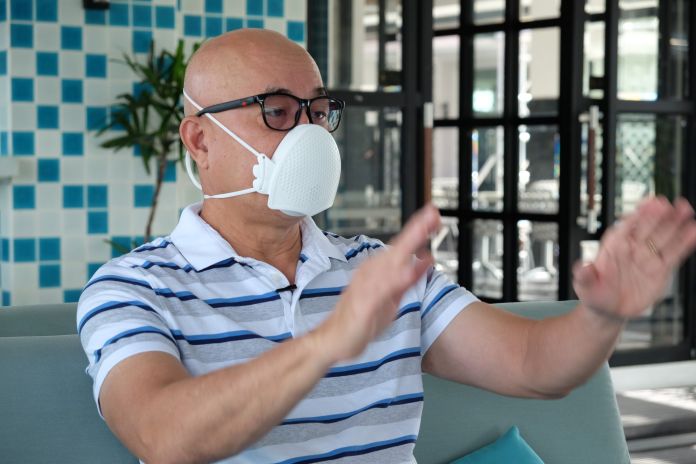When Melquiades Feliciano speaks of the fight against CoVID, someone familiar with or had been through wars, or battles, can’t help but think of images of an invasion.
Like D-Day on the beaches from Juno to Omaha in Normandy – of Germans in machine gun bunkers on the Atlantic Wall, gritting their teeth as the greatest expedition force of the Allies hit them in full strength.
Of corpses of soldiers littering the beaches, some slung on the Belgian gates, fortifications installed on orders of Hitler’s once-favorite general and field marshall, Erwin Rommel, who was away from the front when the invasion happened, who slapped his forehead in disgust at himself for taking a leave when his motherland was being attacked.
Melquiades was like Rommel over the past two month since yesterday, All Souls Day of November 2020 when he and his wife, Mia, went home after organizing defenses in Bacolod City, before that in Cebu.

It could have been surreal for Melquiades, more known as “General Mel” in cities where he helped man the fort or helped set up the defenses against an invisible enemy that is still wrecking havoc across the globe.
It could have even be magically real.
Like in Macondo, the mythical village where his namesake, the gypsy who travelled the world in Gabo’s One Hundred Years of Solitude.
Since September, Gen. Mel was sent here upon the request of the local government to strengthen the system for a more centralized, coordinated and robust response to COVID19 as the cases kept rising.
General Mel is both like General Rommel and Melquiades The Gypsy.
In his past life as an infantryman and later commanding general, he has fought in the trenches as a young lieutenant fresh out of the Philippine Military Academy and, later, commanded 1,500 soldiers as a brigade commander.
He retired with the rank of major general, the third highest in the hierarchy of the Armed Forces, becoming deputy chief of staff for civil military operations.
“We just wanted to help implement the interventions,” General Mel says as he lays his left hand on his chest.
Like a namaste greeting.
He sat upright all through the interview, only his lower back supported by small pillows on the grey back of a couch. Up on the penthouse of an almost empty hotel that had been home to him and his wife for weeks.
He never broke his gaze while talking, his arms animated, the tone of his baritone voice sounding calm, even though he admits during the daily huddles with members of the Emergency Operations Center or the EOC, there were times that he raised his voice.
“I gave a homily several times during these meetings,” he says.
If he said it in jest, it did not show.
He answered questions almost without emotions through the long interview until he started talking about the setting up of the EOC that he left with a culture of “commitment, discipline, and hard work.”
“I am very confident of the EOC here in Bacolod City eight now,” he says.
It was obvious his eyes were getting watery.
If he was wincing or pursing his lips beneath the white face mask he was wearing it could not be known.
“What makes you emotional?” DNX asked.
General Mel paused, lifted his eyeglasses with his left hand and wiped away the tears with his right.
He then tried to look away for a moment before rubbing his palms on his legs.
As if to regain composure.
“Actually yun pala eh, mahina ang loob ko (I am actually emotional),” he says, recounting that he sometimes even raises his voice during EOC meetings.
“It is not intended for anyone in particular but directed to actions and behaviors that do not make a team work.”
After all, the overriding mission is to save lives, he says.
Watch full video of the DNX exclusive interview with Gen. Mel Feliciano.

